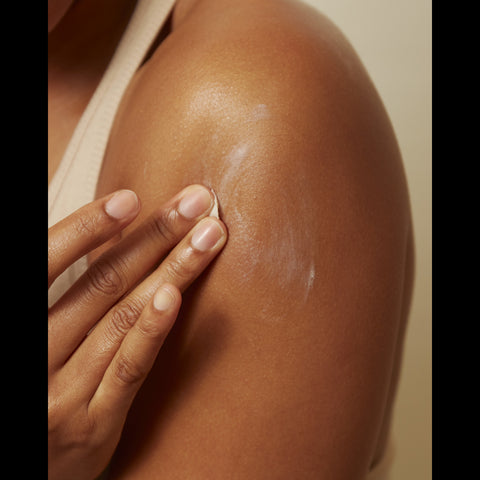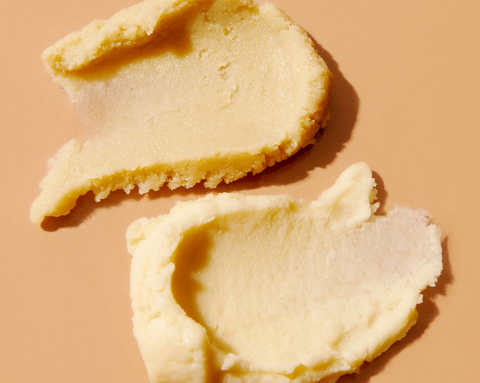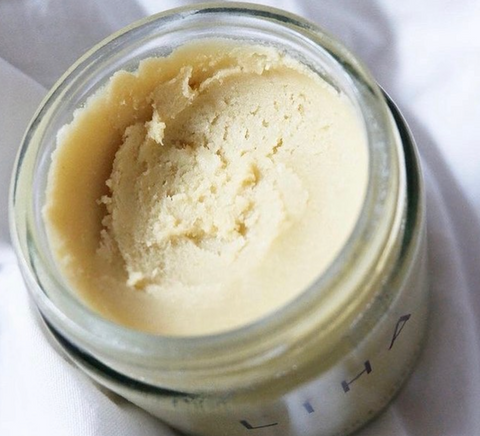Understanding Comedogenic vs Non-Comedogenic Ingredients: What Does It Mean?
When it comes to skincare, one term that often comes up is "comedogenic." But what does it really mean? In simple terms, comedogenic refers to an ingredient's likelihood of clogging pores, which can lead to breakouts and acne. While it doesn't necessarily mean that everyone will experience adverse effects from using comedogenic ingredients, some skin types are more prone to it, especially those with combination or oily skin.
One ingredient that often sparks questions about its comedogenicity is raw Shea butter. But first, let's understand what Shea butter is.
What is Shea Butter?
Shea butter is a fat that is extracted from the nuts of the Vitellaria Paradoxa, or Shea tree. It has been used for centuries by African women as a beauty secret due to its natural properties. Raw Shea butter is rich in vitamins A and E, making it a potent moisturizer for all skin types. It is known to help heal and repair cracked, dry, and irritated skin, making it a popular choice in skincare products like our Gold and Ivory unrefined raw Shea butter.
Is raw Shea Butter Comedogenic?
When it comes to comedogenicity, raw Shea butter has a low rating on the comedogenic scale, typically ranging between 0-2. However, it's important to note that the scale is not foolproof. While it can be a useful tool to assess the likelihood of a substance causing acne or pimples, it's not always 100% accurate as it was developed based on the reaction of animals, and individual human skin types and sensitivities can vary greatly.
While raw Shea butter is considered to be one of the least comedogenic ingredients, there is still a possibility that it may cause breakouts for some individuals. It's always best to do a patch test on your face before incorporating any new skincare product into your routine.
Can you use raw Shea butter on your face?
As discussed, although raw Shea butter is generally considered to be non-comedogenic, it is possible for it to cause breakouts in some individuals. Everyone's skin is different, and some people may be more sensitive or reactive to certain ingredients.
Raw Shea butter is a natural fat that is rich in vitamins and fatty acids, which can provide nourishment and moisturisation to the skin. However, due to its richness, it may feel heavy or greasy on the skin, especially if applied in excessive amounts. Using an excessive amount of raw shea butter or applying it too frequently may potentially lead to clogged pores and breakouts, especially for those with very oily or acne-prone skin.
To minimise the risk of Shea butter causing breakouts, it's important to use it in moderation and to choose a high-quality, unrefined shea butter product. Unrefined Shea butter is less likely to contain added chemicals or irritants that could potentially trigger breakouts.
Additionally, it's important to consider your skin type and individual skin sensitivities. If you have extremely oily or acne-prone skin, you may want to patch test on a small area of skin before applying shea butter all over your face can also help you determine if your skin reacts well to it.
Benefits of Shea Butter for the Skin
Shea butter has a multitude of benefits for the skin. It is rich in vitamins A and E, which are essential for maintaining healthy skin. It also possesses anti-inflammatory and anti-aging properties, making it a great choice for those with sensitive or aging skin.
In addition, Shea butter is highly moisturizing. It forms a barrier on the skin, helping to lock in moisture and prevent dehydration, making it a suitable option for individuals with dry or damaged skin making it a perfect everyday body moisturiser.
Choosing High-Quality Shea Butter
When selecting a Shea butter product, it's important to look for one that is high quality and unrefined. Some companies use harsh chemicals and processes to refine Shea butter, which can strip it of its beneficial properties. Opt for products that are labeled as unrefined or raw to ensure you get the most benefits from this incredible ingredient.
Our Gold and Ivory Shea butter:
At LIHA we use only the very best raw Shea butters which are unprocessed, unrefined, natural and ethically sourced from Nigeria and Ghana.
We have two type of raw Shea butter, Gold and Ivory;
Ivory Shea butter is from Ghana and can be crumbly in texture. It has a nutty vanilla scent, it's perfect butter for keeping small areas such as the lips, hands and feet moisturised on the go.
Gold Shea butter is from Nigeria and has a more smoky, earthy smell remnant from the roasting process of the Shea fruit and waxy in texture. It can be seamlessly smoothed into larger areas of the body as well as being the quintessential weapon against dry, flaky and itchy scalps.
They are both really hydrating and nourishing but we would say the Gold Shea butter is slightly more moisturising and have had amazing reviews for treating eczema and other skin conditions. Check out what some of our customers told us about using our raw Shea butter to treat their eczema.
Why not try our ivory and gold raw Shea butter for yourself - Click Here





Comments (0)
There are no comments for this article. Be the first one to leave a message!